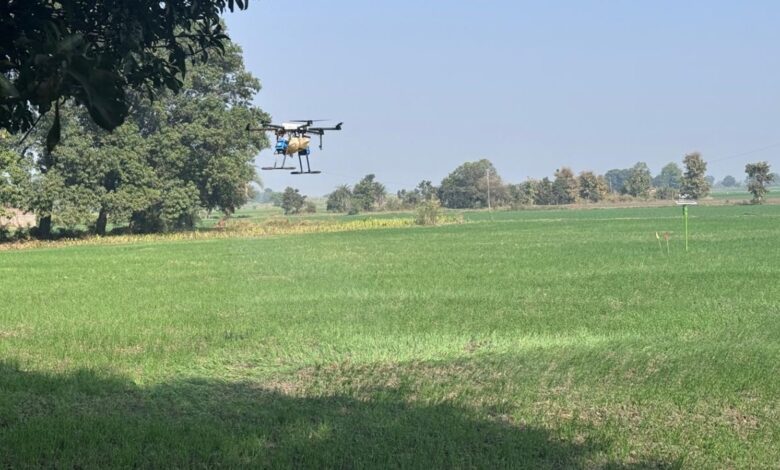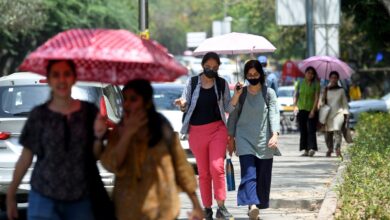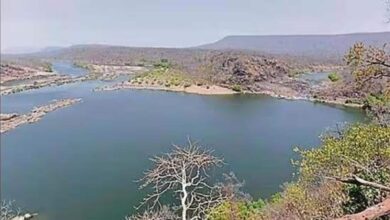ITC helps farmers in MP adopt climate smart agri technologies

Bhopal: Till five years ago, Hari Prasad Verma, 46, had been reeling under debt and planning to sell his five acres of land located in Bhaukhedi village in Madhya Pradesh’s Sehore due to loss in agriculture due to extreme weather, less nutrition in soil and sub-standard seed leading to low production of his crops, especially wheat. Only good crop production is not enough for farmers to get good rates. Things changed for him once he adopted next generation agriculture methods including better varieties of wheat numbered 1634 and 1636, sought help of experts on mobile application, improved soil quality with application of bio-chemicals and got better price for produce sale through Farmer Producer Organisation (FPO). Around 32,000 farmers in Madhya Pradesh have adopted next generation agriculture technologies under the ITC NexGen Agri vision that aims to guide farmers at every step. Verma said Sehore’s sharbati (sweat) wheat received the GI Tag and its market rate also increased. “We were not able to grow it because it needed higher investment,” Verma said. With the help of ITC, he said, they adopted new wheat varieties, and their income doubled. A few kilometers away, a farmer Sawai Singh of Narsinghkheda village was watching two young men spray nano urea through drone. Sawai Singh hired drone services at ₹200 per day to spray nano urea in his farm, which is a smart climate field where farmers use smart practices including AI solution and Geo mapping of crop to get latest weather prediction. Sawai Singh said, “The introduction of WHICH technology in the field helped me in earning profit.” He added advanced irrigation methods such as broad bed furrow method is being used for controlling water usage. In this method farmers sowed wheat keeping a small vertical row vacant in the field for better moure and air for the crop. Joining the conversation, 28-year-old Ramraj Verma said it was ITC MAARS (Meta Market for Advanced Agricultural Services)’s physical and digital interventions that had helped them a lot. “It enabled us to access markets and financial services. It provides hyperlocal e-market services for agri-inputs and farm outputs, enables access to credit and provides a wide range of advisory services covering weather forecasts, agronomy, best practices for improved productivity, quality assurance, etc. We got personalised solutions as crop calculator and crop doctor,” he said. But only good crop production is not enough for farmers to get good rates. That has changed with the introduction of Farmer Producers Organisation (FPO), a collective where farmers sell their produce collectively to the highest bidder. A resident of Bhaukhedi, Gulab Singh, said, “FPOs are changing the lives of farmers as here even marginal farmers having 1 acre land are easily selling their crop at more than Mandi rate. We purchase wheat, maize, lentils and other crops after quality testing. Now, farmers don’t need to travel 30-40 km to sell their crop bearing extra transportation charges.” FPOs are in profit as we also have an easy market in the form of ITC. The ITC purchases our wheat and pays immediately, said Gulab Singh. The best thing in these FPOs is that they are not bound to sell it to only ITC. “It is a mutual consent between ITC and farmers but if they get better price in the open market, they can sell it to anyone,” said Singh. Not only men farmers, but this also empowered women, who are running FPOs and collection centre at their village. A woman farmer of Ichhawar, Sangeeta Malviya said, “This integrated farming and selling is changing our lives. The ITCMAARS App, FPOs and use of other technology have changed the lives of farmers.” ITC agribusiness division chief executive officer (CEO) S Ganesh Kumar said, “There are 1.5 million farmers who have been regered on the ITC MAARS app in 10 states, and they are getting benefit out of it. ITC developed trust among farmers and tried to make their agri business profitable as well as easy. It is the next generation initiatives and technology, and the method is being introduced keeping future challenges, including climatic change, in mind.”






